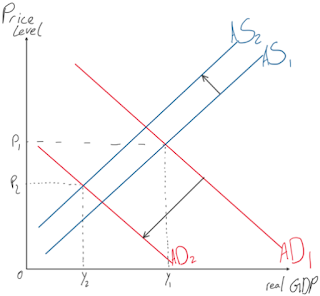The Huge Failure of The Mini Budget
Elizabeth Truss, the new PM and Kwasi Kwarteng, the new chancellor released a “mini budget” last Friday, and there’s a lot to talk about. · What was in the mini budget · What were/will be its effects · My opinions on the mini budget The mini budget has had a drastic, negative impact on the economy within a week of its release and within a month of the Truss government coming to power. So, what is it all about. Key points The mini budget has come with drastic tax cuts, the largest in the UK since 1972. In terms of income tax [1] . The basic tax rate (for earnings between £12,571 to £50,270) will be cut by 1%, from 20% to 19% in April 2023 and the top bracket for earnings over £150,000, 45% will be removed, and the highest rate of tax will be 40% for earnings over £50,270. The removal of which has been cancelled. Additionall...



